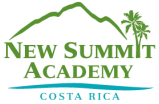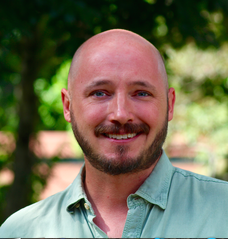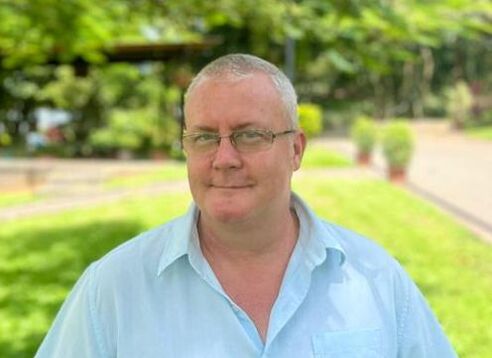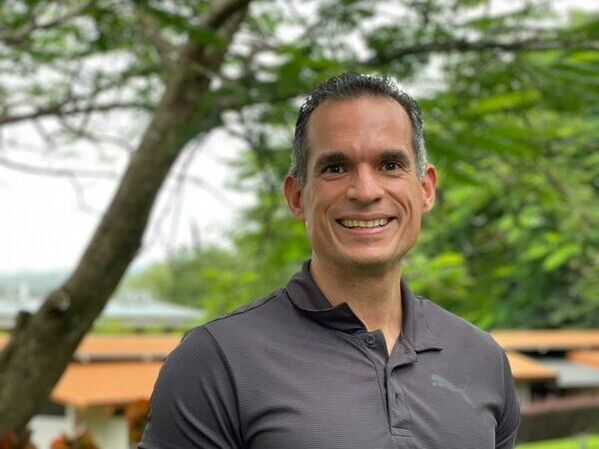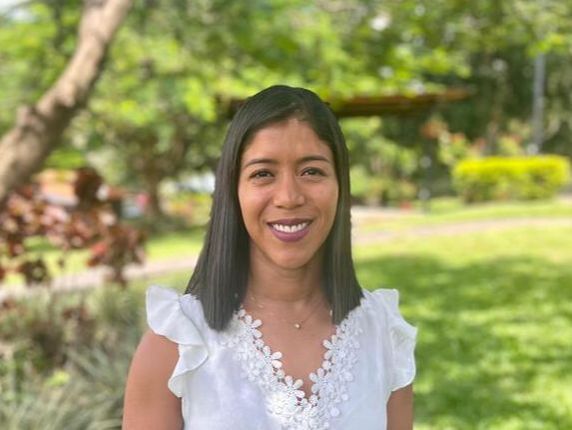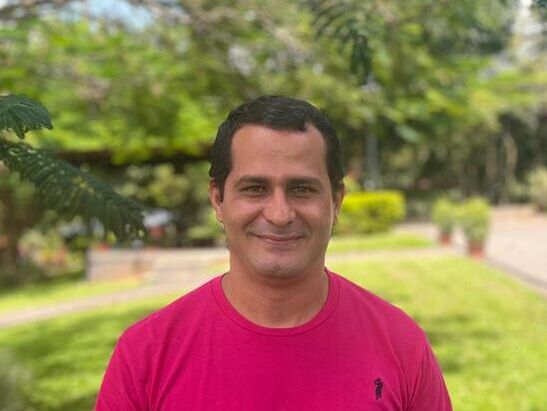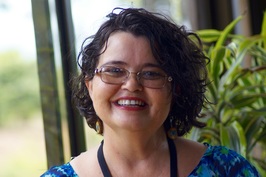ACADEMIC TEAM
Martin Naffziger
|
While with New Summit Academy, Martin has earned his M.Ed. in Global Studies in Education from the University of Illinois, and earned his graduate certificate in college counseling from UCLA. Travel, the outdoors, culture, and education continue to be driving passions in Martin’s life, and he takes great pride in applying these passions to guiding and building an unrivaled Academic program at NSA.
Peter Gottovi, MA in Education
|
During his Masters work in New York, Peter became inspired by such educational theorists as Lev Vygotsky and Howard Gardner. Working in the South Bronx, it became his mission to try to teach in Vygotsky’s “Zone of Proximal Development” through Gardner’s different “Multiple Intelligences”. Early on, it became clear to him that the incredible advances in technology at the time were not being utilized anywhere near to their potential in a vast majority of the classrooms he observed. His principal at the time (now a superintendent for the Department of Education of New York City) asked him to become a lead teacher in technology integration at their school. She gave him the autonomy to write his own curriculum for and integrate his own unique “Literacy through Music and Cultural History” program, which featured a recording studio he built at the school. She wanted him to incorporate his knowledge and skill from his career in music with his English and history curriculum. His students loved the new approach to literacy and history, which allowed them to pen and record their own lyric-centered compositions, in addition to learning much culture and history behind the music they loved. The work inspired his master’s thesis, which was a human study on the impact of technology integration into instruction on his students.
Once at New Summit Academy, Peter immediately got to work building a recording studio as well as bringing down and also acquiring various musical instruments in order to provide the equipment for an energetic, if unorthodox technology-centered music program. But his integration of technology into instruction did not stop there. As the history teacher, Peter has worked tirelessly in order to collect and integrate a large assortment of rich, multi-media content and technology-based, multiple intelligence-delivered products and project/ problem-based research into the standards-based curriculum he developed. It is not unusual that you can hear a group of students “rocking out” in the rancho or in a recording session in the studio while creating new music. It is also not atypical to see a group of students engaged in the creation of a film, a podcast, a song, or the design of a website about an historical event, based on a research assignment. Now, with the integration of iPad technology, Peter is exploring new music apps, such as Real Book for iPad in order to take full advantage of the technology in order to add jazz and blues improvisation to the NSA music program. In addition to his teaching and music collaboration, Peter brings his 35 years of surfing and ocean swimming experience in order to help facilitate surfing instruction, lifeguarding, and trip planning and logistics for NSA’s student-led Surf Club.
Once at New Summit Academy, Peter immediately got to work building a recording studio as well as bringing down and also acquiring various musical instruments in order to provide the equipment for an energetic, if unorthodox technology-centered music program. But his integration of technology into instruction did not stop there. As the history teacher, Peter has worked tirelessly in order to collect and integrate a large assortment of rich, multi-media content and technology-based, multiple intelligence-delivered products and project/ problem-based research into the standards-based curriculum he developed. It is not unusual that you can hear a group of students “rocking out” in the rancho or in a recording session in the studio while creating new music. It is also not atypical to see a group of students engaged in the creation of a film, a podcast, a song, or the design of a website about an historical event, based on a research assignment. Now, with the integration of iPad technology, Peter is exploring new music apps, such as Real Book for iPad in order to take full advantage of the technology in order to add jazz and blues improvisation to the NSA music program. In addition to his teaching and music collaboration, Peter brings his 35 years of surfing and ocean swimming experience in order to help facilitate surfing instruction, lifeguarding, and trip planning and logistics for NSA’s student-led Surf Club.
Juan Diego Rodriguez, BS in Biology Education
|
students, including Rock Band, magic, graphic novels, sports, and video games. During football season, JD runs a fantasy football league (go Green Bay!). JD also helps the Experiential Education department with physical education classes, which gives him a nice and unique opportunity to interact with his students outside the classroom. He loves to go to the gym, play flag football, and especially play basketball with the students. Sports have always been a big part of JD’s life as he also played first division volleyball in Costa Rica and has celebrated a few championships.
JD is one of the staff who is native to the Atenas area. He loves being close to home and has a large family in the area, many of whom have opened their homes as homestay families to our students. JD enjoys spending time at home, talking to his family and sharing histories with them. He also loves to dance Salsa and other Latin rhythms although he claims he is not especially good at it.
JD is one of the staff who is native to the Atenas area. He loves being close to home and has a large family in the area, many of whom have opened their homes as homestay families to our students. JD enjoys spending time at home, talking to his family and sharing histories with them. He also loves to dance Salsa and other Latin rhythms although he claims he is not especially good at it.
Vianney Medina, BA, Teaching Spanish as a Second Language, BA English as a Second Language, and Lic Administration
|
Before joining our Academic team, Vianney worked in our Administration department for years, and has important knowledge about New Summit Academy’s internal functioning and its student community, which will be valuable as a teacher.
As Spanish teacher, Vianney wants to share with our young community all her knowledge about Costa Rican customs and traditions so they can experience real cultural immersion while they learn. Her goal is that students enjoy her Spanish class so that their learning comes easy and naturally. Outside of the classroom, Vianney loves to run, ride her bike, hike, and many other outdoor activities. She also loves hanging out with her family and friends, and traveling.
As Spanish teacher, Vianney wants to share with our young community all her knowledge about Costa Rican customs and traditions so they can experience real cultural immersion while they learn. Her goal is that students enjoy her Spanish class so that their learning comes easy and naturally. Outside of the classroom, Vianney loves to run, ride her bike, hike, and many other outdoor activities. She also loves hanging out with her family and friends, and traveling.
Tonny Garita, MA in Educational Administration,
|
Thanks to his academic formation and his experience in diverse areas and multicultural environments, Tonny certainly knows the importance of teaching mathematics, not only as an exact science, but also as a way to deal with students and daily life experiences. This certainly allows him to understand the applicability of different topics and approaches to achieve meaningful learning.
Stephen Kopels
|
For 14 years, Stephen served as a Senior Producer/Director at PBS, where he crafted numerous award-winning documentaries and live television shows. His work garnered acclaim on national and international platforms, including accolades from the New York International Film Festival, the Gabriel Awards, and the San Francisco International Film Festival. Notably, he represented America at the Rockefeller International Independent Film Symposium in Venice, Italy.
In 1985, Stephen joined as a partner with Image-maker Productions in Nashville, Tennessee, and over the next decade, he produced a myriad of commercials, music videos, corporate films, and documentaries.
Relocating to San Francisco in 1995, Stephen embarked on an independent career, collaborating with Fortune 500 Corporations such as Levi Strauss, Oracle, Federal Express, Bank of America, Westinghouse, DuPont, Texas Instruments, and the Smithsonian Institution. His work also extended to PBS, where he produced and directed three segments for the acclaimed series "Religions of the World," hosted by Academy Award winner Ben Kingsley.
In 2005, Stephen co-founded the San Francisco School of Digital Filmmaking, where he served as President and Director of Education for a decade. The school has trained aspiring filmmakers from around the globe in the art and craft of filmmaking. Concurrently, Stephen co-produced seven feature films for theatrical release with Fog City Pictures.
In 2011, Stephen retired from the San Francisco School of Digital Filmmaking and relocated to Atenas, Costa Rica. There, he continues to share his wealth of knowledge and passion for filmmaking and still photography as a part-time teacher at New Summit Academy.
In 1985, Stephen joined as a partner with Image-maker Productions in Nashville, Tennessee, and over the next decade, he produced a myriad of commercials, music videos, corporate films, and documentaries.
Relocating to San Francisco in 1995, Stephen embarked on an independent career, collaborating with Fortune 500 Corporations such as Levi Strauss, Oracle, Federal Express, Bank of America, Westinghouse, DuPont, Texas Instruments, and the Smithsonian Institution. His work also extended to PBS, where he produced and directed three segments for the acclaimed series "Religions of the World," hosted by Academy Award winner Ben Kingsley.
In 2005, Stephen co-founded the San Francisco School of Digital Filmmaking, where he served as President and Director of Education for a decade. The school has trained aspiring filmmakers from around the globe in the art and craft of filmmaking. Concurrently, Stephen co-produced seven feature films for theatrical release with Fog City Pictures.
In 2011, Stephen retired from the San Francisco School of Digital Filmmaking and relocated to Atenas, Costa Rica. There, he continues to share his wealth of knowledge and passion for filmmaking and still photography as a part-time teacher at New Summit Academy.
Daisy Rojas, Lic. Spanish as a Foreign Language Teacher
|
Daisy holds dear her spiritual beliefs, family values, and desire to serve her community. These have guided her work as a person, mother of two, wife, and professional educator. She is a loving person whose joy for life, unlimited hugs, and hope for the future make her a joy to work with and a person to admire.
